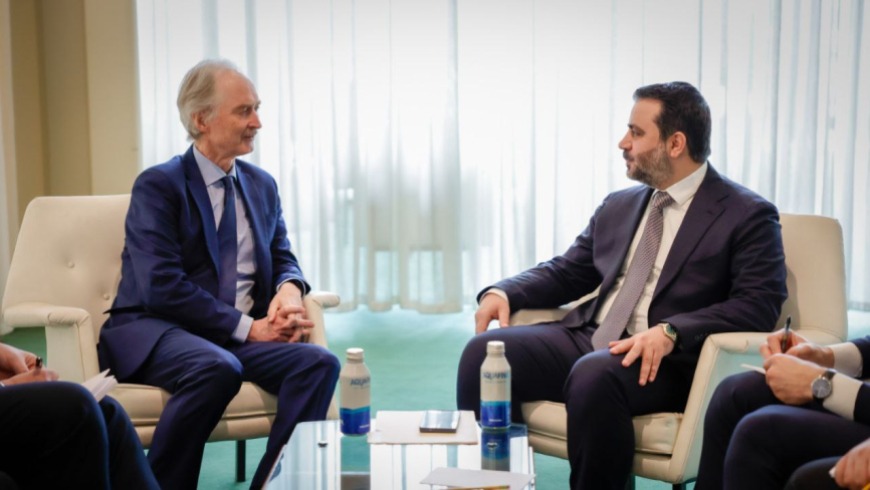In New York this week, Syria’s Foreign Minister Asaad al-Shibani sat down with UN Special Envoy Geir Pedersen for what was described as a “fruitful discussion”—a meeting that signals, at least rhetorically, a shift toward engagement and political pragmatism by Syria’s new transitional leadership.
The themes that emerged from the meeting are encouraging on the surface: inclusivity, transparency, compromise, and the urgent need to weave the country’s northeast — long estranged from Damascus — into a genuinely national process. Pedersen rightly stressed that the forthcoming interim People’s Assembly must reflect Syria’s unity and diversity if it is to earn any public legitimacy.
Further hope came with Pedersen’s welcome of the recent agreement between transitional president Ahmad al-Sharaa and Mazloum Abdi, commander of the Syrian Democratic Forces (SDF) — a development that suggests some political courage and flexibility on both sides. If implemented sincerely, such compromises could help mend the fractured landscape of post-conflict Syria.
Yet while diplomatic niceties prevailed in New York, deep challenges remain unresolved.
At the UN Security Council just a day earlier, Shibani reiterated old demands: pressure on Israel to halt its southern incursions and, crucially, the immediate lifting of international sanctions. He argued that sanctions “burden the country” and block desperately needed capital. He also pointed to Syria’s cooperation with the Organization for the Prohibition of Chemical Weapons (OPCW) as evidence of goodwill — a direct, though partial, response to American preconditions for easing punitive measures.
Shibani’s remarks acknowledged, at least superficially, Washington’s core demands: dismantling the remnants of Syria’s chemical weapons program and confronting terrorist groups. He claimed coordination with international efforts on both fronts.
But questions linger: Will these gestures translate into sustained structural reforms, or are they merely tactical concessions aimed at restoring Syria’s international standing while preserving entrenched power structures? Trust in Damascus—whether old or new—cannot be rebuilt on promises alone.
The real test for Syria’s transitional leadership lies ahead. If Sharaa’s government wants to be seen as a credible partner in Syria’s reconstruction, it must go beyond diplomatic performances. It must demonstrate a firm commitment to transitional justice, institutional reform, national reconciliation, and a constitution that empowers citizens rather than rulers.
The New York meeting between Shibani and Pedersen may have been “fruitful,” but words alone will not plant the seeds of Syria’s rebirth. Only deeds — visible, courageous, and consistent — will persuade a battered nation, and a skeptical world, that a new Syria is truly being born.
This article was translated and edited by The Syrian Observer. The Syrian Observer has not verified the content of this story. Responsibility for the information and views set out in this article lies entirely with the author.


